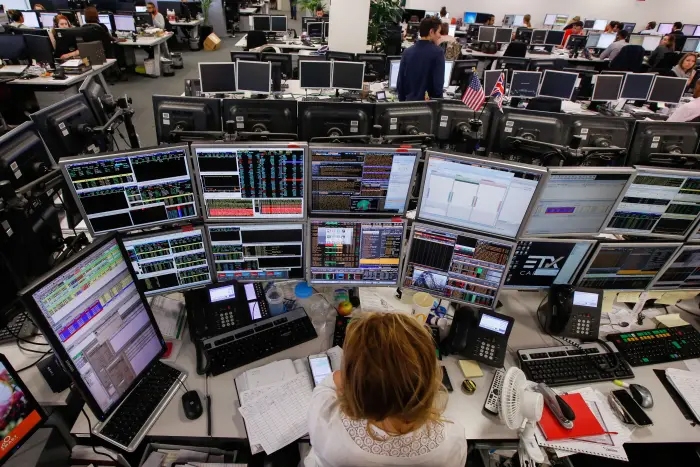
EU leaders finally found a compromise solution to the €750bn Recovery Fund yesterday, which triggered an increase in the EUR and broad-based USD weakness. The Risk sensitive currencies have outperformed, with the AUD rising almost 2% and the NZD decisively breaking above resistance at 0.66. Equities have pushed higher while bond yields have again done nothing.
There have been some big currency moves overnight after the EU finally found agreement over the €750b Recovery Fund. As foreshadowed the previous day, leaders agreed that €390b of the fund should be distributed as grants, mainly to the more vulnerable (and highly indebted) countries in the region, with the remainder being low interest rate loans. Italy alone will receive €82b in grants and €127b in loans. The Recovery Fund is a pivotal moment for the euro area, because it represents the first time that there will be large, fiscal risk-sharing across countries in the region. The EU will borrow the funds on behalf of all the member states, with a significant portion (more than 50% of the fund) not needed to be paid back.
EU Council leader Michel announced the final agreement yesterday afternoon (NZT) to initially little reaction. But the EUR has had a big move higher overnight, rising 0.7% to around 1.1530, its highest level since early 2019. The USD is weaker against all the major currencies, with the Bloomberg USD index (BBDXY) falling 0.8%. The USD is near its lowest level over the past 12 months. Alongside the improvement in sentiment towards the EUR, the USD has been weighed down by the improvement in risk appetite (the 30-day correlation between the BBDXY and the S&P500 is near its highest level in five years).
There have been even bigger moves higher in risk/growth sensitive currencies. The AUD has stormed 1.8% higher, to around 0.7140, its highest level since May last year. Possibly aiding sentiment towards the AUD was the government’s announcement yesterday that it would extend the JobKeeper and JobSeeker schemes beyond the end of September (by six months and three months respectively). There will be a phased tapering and tiering of Jobkeeper payments and new eligibility requirements will see fewer people qualify under the scheme, but the extension is good news.
The NZD has burst through resistance at 0.66 amidst the broad-based weakness in the USD and firming in risk appetite. The NZD has risen about 1% since the NZ market close to about 0.6640, its highest level since January. The GlobalDairyTrade auction overnight saw a small fall in the overall index and a modest rise in whole milk powder prices, about in-line with our expectations. Whole milk powder prices are back to where they were in January. As the NZD hasn’t been able to keep pace with the AUD, the NZD/AUD cross has fallen to 0.9310, near a six-week low.
Even the safe-haven JPY and Swiss franc have made gains against the USD overnight (+0.5%), although they have underperformed the rest of the G10.
Most equity markets have pushed higher again, with the S&P500 rising 0.4% to its highest level since February. The index is now around 3% from its all-time highs. For a change, the big tech stocks haven’t been behind the rise in the S&P500, with energy sector stocks (+6%) and banks (+3%) leading the way. The NASDAQ, in contrast, is down 0.5% overnight, but still near its all-time high. European indices rose by 0.2% to 1%, reflecting optimism around the EU Recovery Fund.
US corporate earnings have continued to generally exceed analyst expectations. It’s still early days in the reporting season, but so far around 80% of companies have beaten (depressed) earnings expectations. Overnight, Coca cola reported its biggest quarterly decline in revenue in 30 years but management expressed optimism about the outlook, with countries coming out of lockdown, and its share price rose around 2%.
Besides the trend in COVID cases, another market focus at present is whether Republicans and Democrats can broker a new fiscal stimulus package before the end of the month, when enhanced unemployment benefits are set to expire. Republican leader of the Senate Mitch McConnell said that he favoured sending a new round of cheques sent directly to households earning below a certain threshold, which is likely to find support from the Democrats. There are clear divisions between the two parties on other measures however. McConnell said he intended to put a new bill forward over the coming days.
Global rates have again been completely divorced from the optimism reflected in other asset markets. The US 10-year Treasury yield is unchanged overnight, at 0.6%, and near its range lows. The market awaits the FOMC meeting at the end of the month, with recent comments from Fed officials suggesting the central bank is moving in the direction of tolerating a period of modestly above-target inflation, to compensate for previous periods where it has been below target.
NZ swap rates were little changed yesterday, although they remain at extremely low levels, while NZ government bond yields fell 1-3bps. NZ government bond yields have declined relative to offshore markets since the May-2041 bond syndication last week, partially reversing a previous period of underperformance.

We welcome your comments below. If you are not already registered, please register to comment
Remember we welcome robust, respectful and insightful debate. We don't welcome abusive or defamatory comments and will de-register those repeatedly making such comments. Our current comment policy is here.